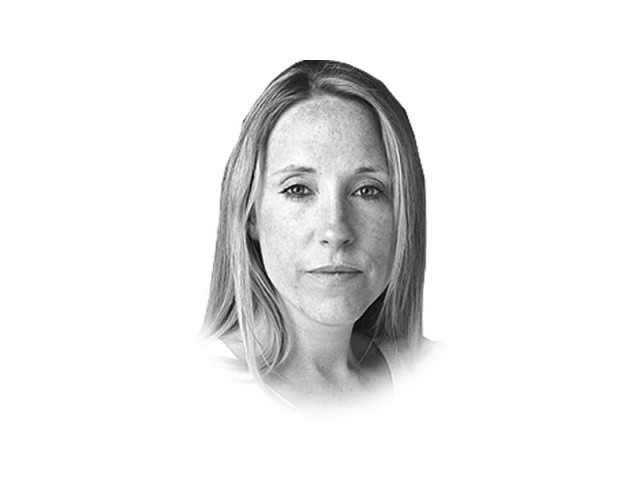Missing in action: XX chromosomes
Women need to be at the table: in Davos, Montreux and everywhere in between.

The writer is an international lawyer who has worked on human rights and humanitarian law projects in the US, Europe, Asia and Africa
Concrete takeaways from either event will be hard to come by; the Syrian talks are ongoing, and by all accounts, are laborious. Negotiators may be able to announce small victories regarding humanitarian access in certain besieged areas, but big breakthroughs are unexpected, and participants will be circumspect in their comments. Likewise, Davos participants pride themselves on discretion and are unlikely to engage in careless gossip with reporters for fear of jeopardising their access to power brokers.
Twenty-five countries had representation at both meetings — largely Western and Middle Eastern nations, but South Africa and Russia made an appearance as well, as did Japan, China and South Korea. The attendance lists are a good snapshot of which states wield influence on the world stage, or at least aspire to do so. However, perhaps, the most glaring similarity between these two major conferences was the severe under-representation of women: XX chromosomes were in short supply at both events. This is not surprising, but is troubling.
The privileged business elite are very much aware of the pervasive gender imbalance. Lately, the WEF has begun in-house initiatives to increase female participation at its annual meeting and has extended incentives to companies, which ensure that their list of delegates includes, at least, one woman. The goal is for, at least, 30 per cent of participants to be female; for 2014, the final tally was half of that. When pressed, defensive organisers say the attendance numbers merely reflect reality: invitations are issued to the most influential people in the corporate world. Women comprise less than 20 per cent of the boards of directors at Fortune 500 companies, and — according to the WEF — the Davos ‘brand’ cannot be maintained if they lower their standards or impose quotas.
As inadequate as this response might be to parity activists, at least the business world is grappling with gender questions. The same cannot be said in the corridors of international politics and diplomacy. Certainly, lip service is paid to gender considerations in UN deliberations, and most resolutions emanating from the General Assembly or the Human Rights Council will have language calling for women to be ‘fully included’ in ‘any deliberations’ that could affect their welfare. But not unlike their counterparts in the corporate world, the conference rooms of the UN are still largely populated by middle-aged white men, and women are conspicuously absent at high level policy discussions.
The gender disparity in the corporate context is disappointing; in a conflict situation like Syria, it is alarming. Women, already marginalised in much of the world by entrenched cultural practices, bear the brunt of harm caused by armed conflict. Nowhere is this more apparent than in the refugee camps housing Syrian refugees in Jordan, Turkey and elsewhere. Stories of rape, prostitution and human trafficking are rampant. Teenage brides — an accepted practice in Syria — are getting younger every day as parents try to preemptively guard their daughters’ honour through marriage. Younger wives mean younger mothers, meaning not only are girls missing out on the curtailed educational activities the camps are able to provide, but rudimentary medical clinics have to address the particular health risks of teenagers giving birth. Women need a voice in planning and addressing such situations.
As world leaders work to set the coming year’s global agenda in the wake of last week’s discussions, they should remember that the outcomes of these talks have real world ramifications. Women need to be at the table: in Davos, Montreux and everywhere in between.
Published in The Express Tribune, January 29th, 2014.
Like Opinion & Editorial on Facebook, follow @ETOpEd on Twitter to receive all updates on all our daily pieces.















COMMENTS
Comments are moderated and generally will be posted if they are on-topic and not abusive.
For more information, please see our Comments FAQ